Blesma launches a series of Making Generation R podcasts that pairs six Members with celebrities for frank, funny and moving conversations.
The Blesma Members involved in the Making Generation R programme have, for the last few years, been taking their life stories of overcoming adversity into schools. Now, their inspiring tales are being shared with an even wider audience through a series of podcasts. The Resilience Sessions podcasts pair a Member with a well-known public figure, and the results have been a moving and thought-provoking series of talks. Some of the celebrities, including Ray Winstone, Carol Vorderman and Baroness Tanni Grey-Thompson, were already familiar with Blesma, while others like amputee chef Michael Caines were more than happy to take part once the concept was explained to them.
“I think the Members have got a lot out of the talks,” says Operations Director Ian Waller. “Self-worth and usefulness are powerful feelings, and these stories can inspire anyone. The workshops have been working so well in schools that we wanted to spread the message even further.”
And it seems to be working; the podcasts have been downloaded across 40 countries worldwide, with over 3500 listens, 600 subscribers, and topping the global podcast charts on iTunes at number 12 in its category and continues to grow with every episode, helping more people to develop their personal resilience.
We spent time with the six Members who took part to find out what they got from the experience…
When Si met Carol
Si Harmer lost both his legs to an IED in Afghanistan in 2009 while attached to the Coldstream Guards. His podcast saw him chatting to TV presenter Carol Vordermam.
What was it like to be part of a podcast? It was really good fun. I’ve been on a few before to tell my story, both in the UK and the USA, so I was familiar with how they work – but this was a little different because it involved a celebrity. I like podcasts, they’re a great format because they’re accessible; you can listen to them anywhere – on your commute to work or at the gym – and I find that you can often listen to them a number of times. You can go back again and again and take different things out of a conversation.
Did Carol surprise you with what she spoke about? She did. I learned loads I didn’t know about her. Her dad was in the Dutch resistance during WWII, and she had wanted to serve in the RAF after graduating from Cambridge, but she got knocked back because they didn’t allow female fast jet pilots at the time. It was interesting that she didn’t feel bitter about that, and still has a deep affection for the RAF. She was affable, great to chat to, and very interested in what I had to say. She really listened, and it was a lot of fun.
You were already an experienced public speaker before doing this project, but did it help you polish your story? I followed much of the same narrative I use for my Making Generation R talks in schools, although I mixed it up a bit for the podcast. We went into what I did before my injuries, my experiences leading up to the incident, and what happened on the day. I then assessed what took place afterwards, and how I got through the whole thing with the help of others. Making Generation R definitely helped me refine my story, though. It’s great when you strike a chord with someone during the talks and workshop – there is usually one student who stands out. And if the podcast can help a wider group of people in a similar way, that’s great. That’s what we want it to achieve. It’s all about making connections, and hopefully people can pick up a few tools to apply to their lives.
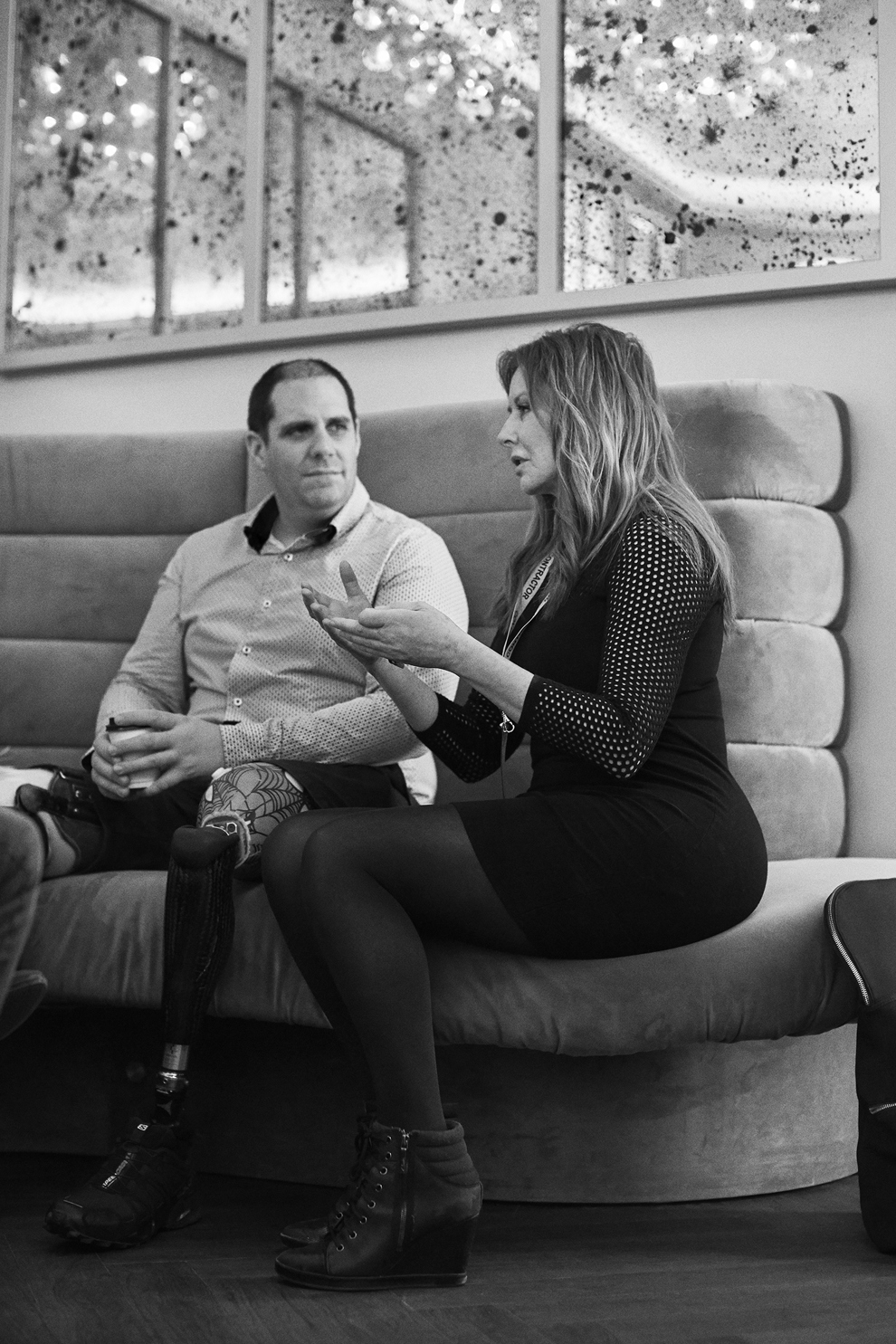
When Ken met Ray
Ken Bellringer was injured by an IED blast in Afghanistan in 2009. He spoke to British acting legend Ray Winstone.
What did you think of The Resilience Sessions podcast concept? The idea is brilliant. I believe it came from something Si Harmer had said when thinking about his time in hospital. He said the demons would come out at night, and you could end up thinking about your injuries, your life and your future. That struck a chord with me. Si said he needed something to listen to at that time, and this project came about to address that.
What was it like speaking to such a huge box office star as Ray? Fantastic! I’ve met Ray before – he came to Selly Oak when I was injured, so it was quite relaxed. We chatted about all sorts. We got on so well that we were interviewing each other – we behaved like naughty boys! But things got quite serious, too… Ray has this hardman persona, and he was a very successful amateur boxer. He told me that sometimes people avoid him on a film set because they think he’s grumpy! But he isn’t. He’s a nice, down-to-earth man. The hard outer shell is how he made his career, but I got Ray talking about when his mum died, and how it affected him.
Opening up about things is the central message to the podcasts, then? Yes. You think; ‘Hang on, this is Ray Winstone pouring his heart out here.’ Hopefully, it will get people to realise that if Ray can do it, so can they. It’s all about getting people to talk. Hopefully, that will help them through life, and in some cases, it might actually save their life.
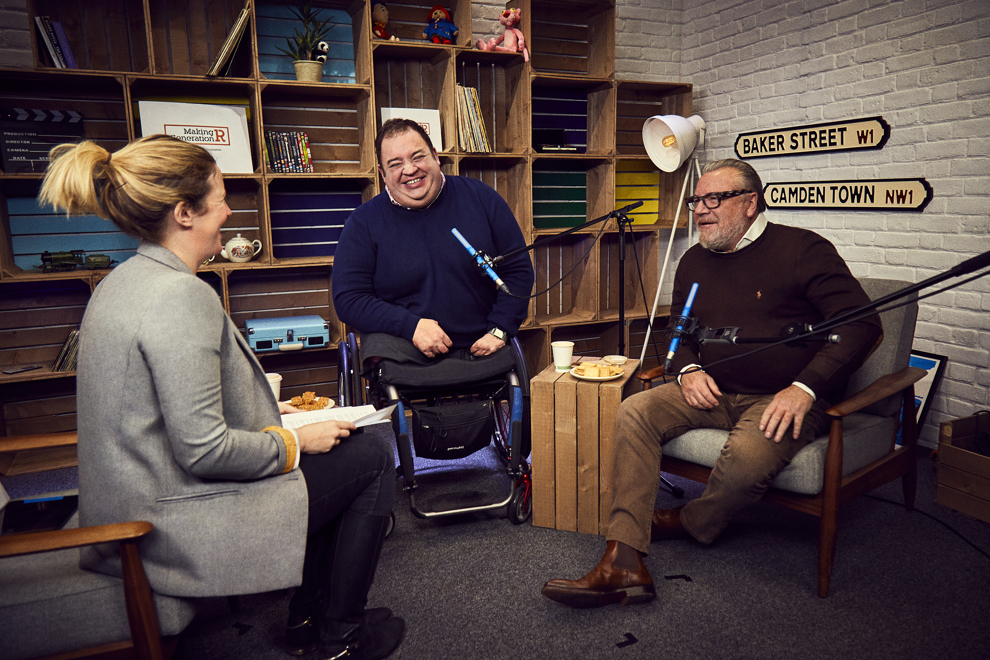
When Shaun met Vick
Shaun Stocker was injured by an IED in 2010, losing his legs and much of his sight. He spoke to presenter Vick Hope.
You’ve lost much of your sight since your injury. Have you found podcasts useful? My eyesight is not good enough to read books, so along with audio books, podcasts are my main source of learning and have improved my life massively. I listen to a lot of self-development podcasts, so when I was asked to be on one, I saw the value right away. This puts part of the Making Generation R talks we give in schools permanently on record, so people everywhere can access them.
How was the day for you? Meeting Vick was great. She was lovely, very intelligent, and it was interesting to hear her backstory. She’s not been in the military or suffered injury, but she went into some of the things she faced and had to come to terms with growing up, like dealing with grief at university and challenging sexism throughout her career.
Your rehabilitation has been particularly tough. That must have been a major part of the conversation…Yes. I stood on an IED in Afghanistan while I was looking at the floor, so the blast hit me in the face. I was blinded instantly, so I couldn’t see what was going on. I was conscious but didn’t know I’d lost my legs– the body shuts the pain down! I thought that once they taken the dirt out of my eyes, everything would be clearer, but I had surgery and one eye was removed, while the other recovered just 30 per cent sight. Losing your legs is tough, but trying to regain your independence and learning to walk on prosthetics when you’ve also lost your vision is even harder.
How helpful has the Making Generation R programme been for you? It’s been brilliant. Blesma gets to make a difference in the community. It is a brilliant way for Members to both give something back and build their independence. It’s one of the best projects I’ve ever been involved in!
What do you hope listeners will get out of your podcast episode? It’s an opportunity for people to hear what I speak about in my talks. They can go back to the podcast episode and get different things out of it. I really hope it can help and inspire lots of different people.
If you’re looking for a podcast to inspire you, motivate you and move you, this is the one! Completely wonderful!
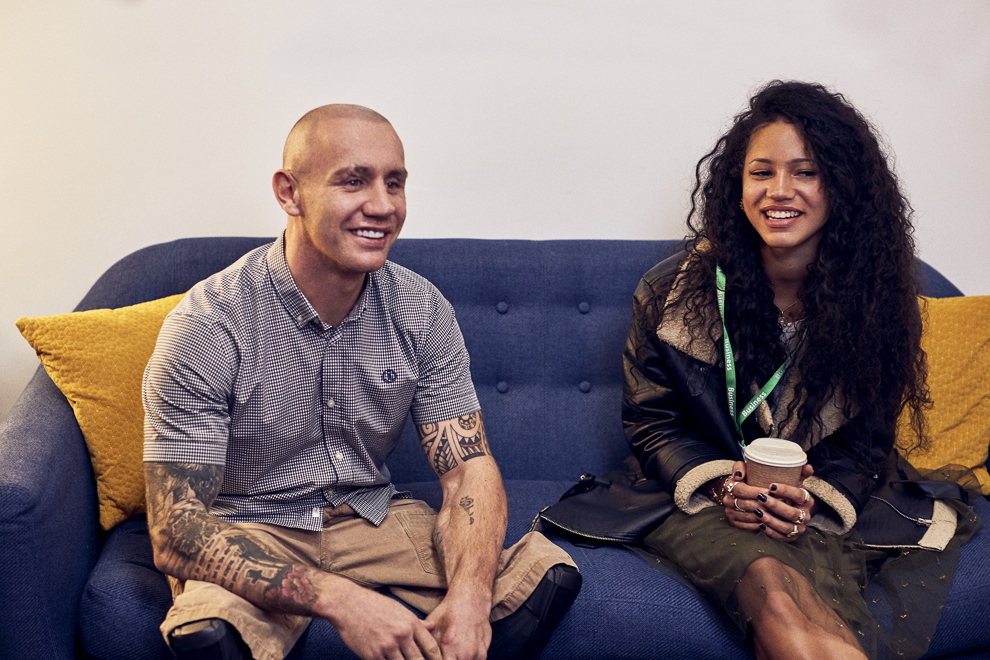
When Nerys met Tanni
Nerys Pearce was paralysed in 2008 in a road traffic incident. She met Paralympic legend, Baroness Tanni Grey-Thompson, who is now a politician and TV presenter.
What do you think of the concept behind The Resilience Sessions podcasts? I love the idea that when people are feeling low, often at night when they’re alone, they can turn to podcasts to help them through. It’s something uplifting to listen to during dark moments, lying awake in pain. That’s a really hard time to find resilience. This is an amazing way to put something positive out there. I’ve always put a film on when I’ve been having a bad night, but this has introduced me to podcasts, and I’m looking forward to listening to the other ones.
How was Tanni? She’s funny, down to earth, and she has faced all kinds of struggles. She knows all about sports and disability, of course. She’s had the same struggles as I’ve had – but maybe even more so because she’s never had the opportunity to run up mountains. There’s a side of life she’s not been able to experience. But she’s so inspiring. At one point she held 30 world records at the same time! Winning 16 Paralympic medals while dealing with disability and everything life throws at you is impressive.
What did you chat about? All sorts. She had commentated on my 2016 Invictus Games race, so that was funny. I grew up with my mum facing disability, and Tanni’s daughter is in the same situation, so we spoke about disabled parents, transport problems, using sports to push yourself forward. We have similar opinions, although I could never get involved in politics! Tanni is trying to make changes. She’s doing things that are perhaps outside the realms of what some people might think a disabled person can do.
How do you hope people will react to your conversation? I’d like it to show that no matter how down you might be, if you can just take a minute to accept help, you can find a way forward. I hope it encourages people to say yes to every opportunity they get. Whether you think you like art, sport, drama or politics, give everything a go. You may discover a new side of yourself.
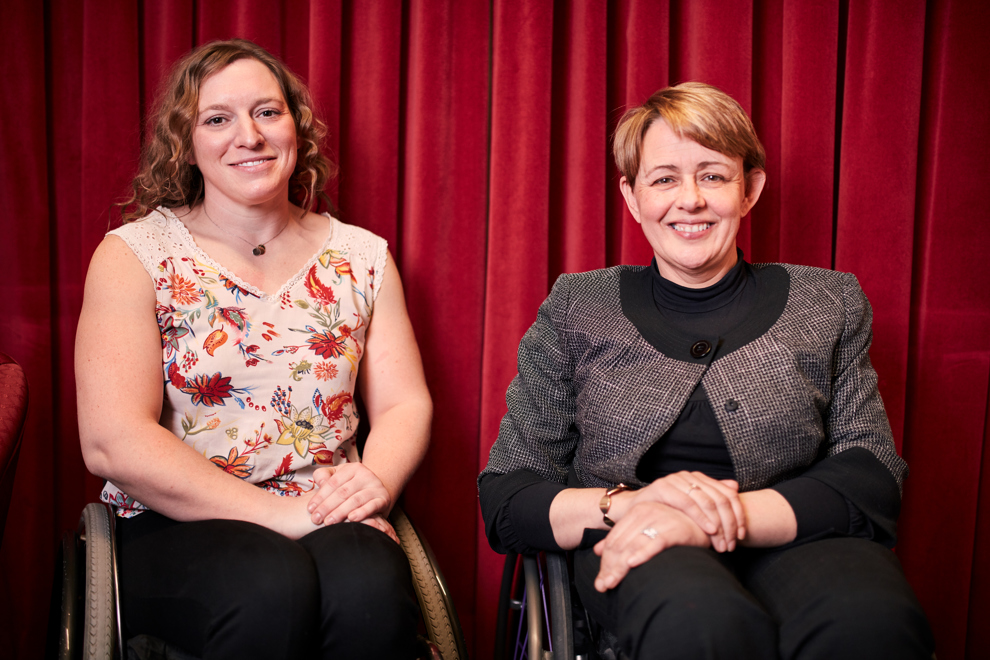
When Mark met Michael
Mark Ormrod lost three limbs to an IED attack in 2007. He spoke with Michael Caines, the Michelin-star-winning chef, who lost his right arm in a car accident in 1994.
What do you like about the format? I’m a massive fan. I’ve been on quite a few, and I set up my own, the No Limits Podcast. The idea of mine came from doing a lot of personal development activities. I got into journaling – writing down your thoughts, feelings and what you want to achieve – but it’s a pain for me because I have to use my left hand. So, I began talking into my phone, and that turned into a podcast.
How was this experience? It was a great idea. Michael is a very cool guy and he’s done a lot of cool stuff in his life. From a listener’s point of view, I think introducing regular people to celebrities is very interesting. It’s people from two different worlds coming together. We both did a bit of an overview of our stories, and then the conversation started to flow in all directions.
You’ve both been through limb loss. What was Michael’s perspective on it? He has a very good attitude about it, and he was very positive about getting the story out there and using it to inspire people not just people who are going through the same situation, but anyone. It’s about motivating and inspiring others. I think Michael probably told me some things that he might not have said to an able-bodied person. We had a commonality through limb loss and could relate to each other.
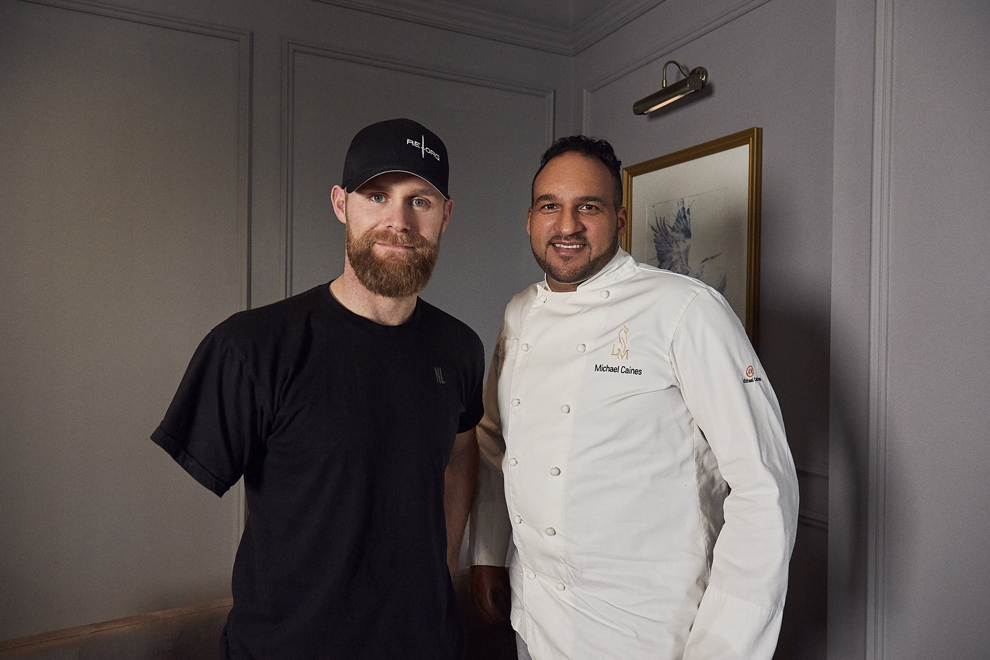
When Stewart met Jonny
Stewart Harris suffered multiple injuries, including the loss of his right eye, after an IED blast in 2012. He spoke with mental health campaigner Jonny Benjamin.
Jonny’s message is about how more people need to discuss mental health. That must have been fascinating… It was. I’m glad to have met Jonny because he’s done some amazing campaigning in the area of mental health [Jonny has schizophrenia and bipolar disorder and wrote the book The Stranger On The Bridge about his suicide attempt]. It’s something I always try to educate people about whenever I get the chance. It’s all about being a bit kinder to yourself in certain situations. These issues affect everyone, and you can’t have a good day unless you’ve experienced a bad day.
You’ve shared some similar experiences. Did you discuss them when you met? Jonny ended up putting himself in a mental health unit, and I’ve been there too. I was choking up a bit at his story. It educated me, because my mental health issues were related to combat, while his were very different but just as serious – if not more so. Jonny had schizophrenic episodes from a young age… He’d hear voices. His parents would tell him not to be silly, but then he started to see people, things progressively worsened and he made the decision that he was going to kill himself. For me, I felt like I was holding everyone back. I thought taking myself out of the picture was the answer.
You both had revelations at the point wanting to take your own lives? He was about to jump off a bridge when a man appeared and talked him out of it. I was also about to do it, and boom, I had a vision; I saw my daughters being bullied at school. I don’t know why it happened, but I’m so glad it did. We told each other how wrong we were to feel worthless and discussed the things we’ve achieved since. I can honestly say that the earth is a better place with you on it – we can all change, and there is always room for forgiveness.
A podcast is a great place to advertise the power of talking to each other…Yes. And it was a great experience; we talked about all sorts, from social media to how anyone can be affected by these issues. I hope the conversations can help a few people.
They are truly inspirational and informative. Many people have no idea what these brave lads, and lasses, go through. Hopefully this series will open their eyes. Powerful stories about overcoming adversity, but relatable to everyone. Truly inspirational and so worth a listen!
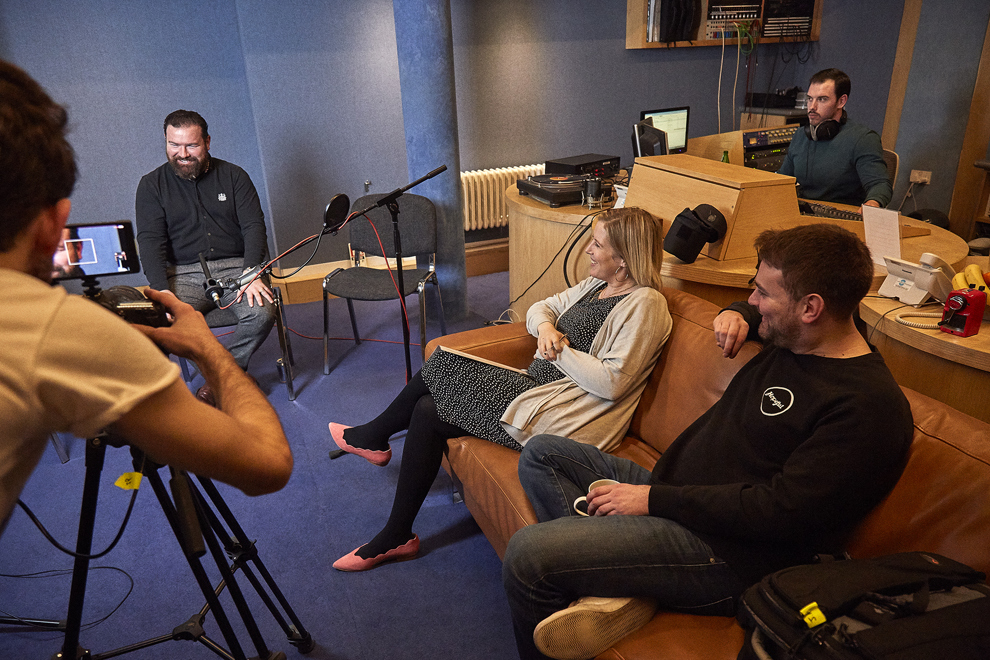
We can help
We are dedicated to assisting serving and ex-Service men and women who have suffered life-changing limb loss or the use of a limb, an eye or sight. We support these men and women in their communities throughout the UK. Click the link below to find out the different kinds of support we offer.
Get Support
Leave a comment
Join fellow Members and supporters to exchange information, advice and tips. Before commenting please read our terms of use for commenting on articles.